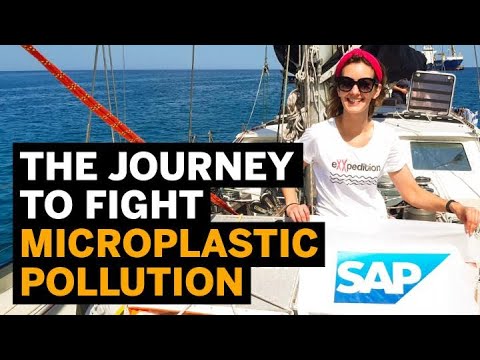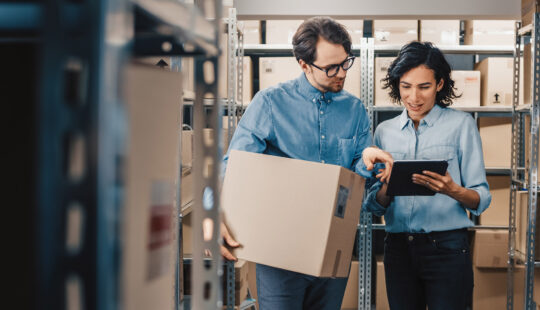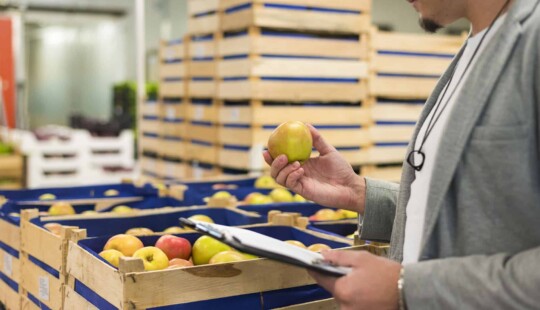SoulBuffalo is a company that gathers industry leaders, executives, innovators, and activists together to address environmental challenges. Meetings and summits are often held in threatened ecosystems to enable corporate decision-makers and other game-changers to experience the magnitude of the problem firsthand.
“It’s emotional,” says SoulBuffalo Founder Dave Ford. “The experiences crystallize in their minds into something they will never forget.”
Relationships forged while standing ankle-deep on plastic-polluted beaches evolve into determination to take immediate action and permanent bonds that normally would take years to establish. But Ford and his team have a new challenge.
“The coronavirus crisis has forced us to recalibrate,” he explains. “We’ve had to cancel our next Ocean Plastics Leadership Summit, but we can’t stop working on one big global challenge because another big global challenge has emerged.”
SoulBuffalo’s challenge now is to create virtual experiences that have the same gut-wrenching feelings that in-person immersive experiences typically elicit.
“We’re exploring a variety of technologies like Zoom, combined with augmented reality, virtual reality, and mixed reality,” Ford shares.
Experiences Shape Solutions
In order to drive lasting change, however, in addition to their own experiences, leaders must also understand the experiences of everyday citizens and how various issues are impacting their day-to-day lives. A recent study by SAP and Qualtrics on public opinion regarding a more sustainable world showed that respondents are twice as likely to prioritize the environment over economic growth. This is a clear signal to business leaders that sustainable practices are the foundation of the future.
Last year’s Ocean Plastics Leadership Summit was supported by SAP as part of the company’s Ocean Vision 2030 and has evolved into the Ocean Plastics Leadership Network, which comprises 60 of the world’s top organizations, including corporations, activists, non-governmental organizations (NGOs), academics, and industry experts. The group is committed to creating a plastic-free ocean in 10 years, with several initiatives born at the summit already well under way.
One of them aims to support 2 million waste workers in Global South countries by giving them access to global supply chains through Plastics Cloud so they can market the plastic recovered from the trash dumps worldwide.
Another initiative is a coalition of consumer packaging companies — including Nestlé Waters, Kimberly-Clark, HP, Hasbro, Colgate, and Chlorox — dedicated to creating sustainability-focused products and experiences designed to encourage consumers to purchase them.
Helping marginalized workers experience economic success, reintroducing plastics into a circular value chain, and reinforcing sustainable buying behavior are all examples of how understanding the experiences of everyday citizens is critical for leaders to drive lasting and impactful change.
Creating Scalable Experiences
In addition to working with SoulBuffalo, SAP recently partnered with ocean activist Emily Penn, co-founder of eXXpedition, an all-female network of interdisciplinary experts who are exploring solutions to the ocean plastics crisis. As with SoulBuffalo, the COVID-19 pandemic is forcing eXXpedition to review the schedule for its “Round the World” ocean journey.

“Seeing the real challenge of microplastics makes it easier to transmit a sense of urgency,” says Penn, who has spent years taking individuals to the most remote parts of the planet. “Having been there on the boat gives participants the authority, confidence, and motivation to take action back on land. They can’t un-see what they’ve seen; instead, they head home and create positive change.”
Like Ford and Penn, other leaders are looking for ways to create more immersive, unforgettable experiences online. The upside is that technology will make these experiences available on a much broader scale.
“We’re very excited about leveraging SAP technology and the Qualtrics customer experience solution to create a custom-built digital platform for educating people on reducing plastic waste,” Penn says.
Former eXXpedition participants are bringing the experience to life through videos, blogs, and community action: Eleanor Church made an eye-opening feature film about crossing the so-called Great Pacific Garbage Patch; Tanya Ferry started the Living River Foundation to clean up the rivers in London; and Rowan Henthorn is working with the Isle of Man to make it free of single-use plastic.
Communities for Change
Natasha Pergl is global sustainability lead for Innovation Services and Solutions at SAP. She was able to join the most recent leg of eXXpedition from the Galapagos to Easter Island and is co-leading an initiative at SAP to create a cleaner ocean by 2030, working closely with leading NGOs and producers to better enable cross-industry collaboration and transparency across the supply chain.
After finding her sea legs, a valuable lesson Pergl learned on board was to live resourcefully – eating fresh food first, using minimal amounts of water and energy, minimizing waste. Never having sailed before, she learned to adapt to the tasks, environment and weather conditions.
“We were not there as passengers, but as fulltime crew members 24/7,” she explains. That meant kitchen duty and four-hour night watches on a regular rota. Crew members trawled for hours every day to collect water samples, a tricky feat when sailing constantly upwind in choppy waters. More experienced crew members climbed the mast to collect air samples, and the team took part in beach clean-ups in Galapagos. “We were shocked to find a sea lion with a plastic cup in its mouth just before leaving.”
Expriences like these keep people like Pergl even more committed to creating a plastic-free ocean. Understanding different perspectives is equally important, hence a crew from different nationalities and disciplines.
One of Pergl’s sailing partners was fashion activist Carry Somers, founder of Fashion Revolution, a global movement calling for greater transparency, sustainability, and ethics in the fashion industry. Meeting people like Somers is vital to the work happening at SAP. “Being connected to her network helps us better understand how technology can drive consumer consciousness and action from business,” says Pergl, who plans to share her insights with industry experts and business leaders to help shape the solutions and services being developed at SAP.
While on the boat, Somers explained the importance of transparency: “The current fashion business model isn’t working for the environment, and there is no way to hold brands to account if we can’t see what is happening behind the scenes. At Fashion Revolution, we believe transparency leads to greater accountability, which eventually will change the way the industry works. Transparency alone does not represent the sort of structural, systemic change we would like to see for the fashion industry, but it helps us get there.”
As an eXXpedition ambassador, Pergl is now a part of a community of change makers aiming to find solutions to plastic pollution from sea to source, be it through stories, community, industry action, or virtual engagements.
“Being out on the ocean and experiencing the problem firsthand emotionally connects people to the problem,” Pergl says. “With technology, we can replicate that firsthand experience into tangible action items any individual or business leader can take to drive change.”
Follow me on Twitter: @magyarj.



